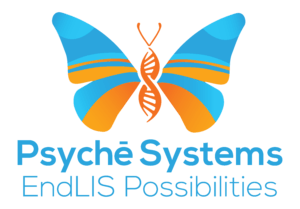The process of gastrointestinal cancer diagnosis has seen significant improvements in recent years, but the quest for better patient outcomes is still ongoing. Equipping your lab with a quality LIS platform is critical for staying on top of the latest molecular testing lab trends and ensuring you have the tools to support streamlined workflows and data management strategies that evolve. Here are some of the most important things to know about the latest innovations in molecular testing and how technology can help support accurate and early GI cancer diagnoses.
Emerging Molecular Biomarkers in GI Cancer Detection
While traditional methods for detecting gastrointestinal cancer can still yield acceptable results, the emergence of new options for detecting GI cancer and other types of cancers earlier, more accurately, and less invasively brings hope for improved patient outcomes. The integration of various genomics, transcriptomics, proteomics, and other emerging biomarkers into molecular testing labs offers exciting opportunities to enhance the diagnostic process and reduce the prevalence of misdiagnosis.
Liquid biopsies and circulating tumor DNA (ctDNA) testing, both new and emergent molecular biomarkers, offer exciting opportunities for improving the typical diagnostic process for certain types of GI cancers. Liquid biopsies search for specific genetic changes or circulating tumor cells (CTCs) in the blood or other fluids, which can help detect pancreatic cancer earlier than traditional methods. Pancreatic cancer is unique in that prognoses are more likely to be poor, all the more reason to employ testing methods that can more accurately detect early signs of this type of GI cancer and get patients started on treatment before the condition progresses to a less-treatable stage. Circulating tumor DNA is a specialized type of liquid biopsy that has shown high levels of success as a colorectal cancer detection tool.
Overcoming Challenges in High-Throughput Molecular Testing
While molecular testing is set to revolutionize the GI cancer diagnostic process, it also presents certain challenges. For instance, ensuring consistent sample quality and quantity is paramount for obtaining reliable molecular testing results. Liquid biopsies, while more likely to detect cancers earlier than other methods, are not infallible and can miss potential positive diagnoses. However, innovations in automation and high-throughput screening can mitigate these challenges by improving consistency and accuracy.
For labs that rely on older technology, managing more complex data sets can be a challenge. However, the integration of AI and other modern innovations can provide reassurance, as these tools can help produce better results while keeping vast amounts of information organized.
Next-Generation LIS Solutions for Advanced Molecular Testing Labs
As with many fields, artificial intelligence will significantly impact the molecular testing industry. The addition of AI-driven technology and machine learning to cloud-based LIS platforms can further enhance the software’s ability to organize massive amounts of information and use it to improve the accuracy of diagnoses. These new tools can use predictive analysis to enhance a lab’s overall quality control process, instilling confidence in the accuracy of diagnoses and providing a better experience for the hospitals and their patients.
The Future of Precision Oncology in GI Cancers
Phasing out older diagnostic tools in favor of liquid biopsies, circulating tumor DNA analysis, and other new innovative testing methods can help labs pave the way toward obtaining diagnoses that are more accurate and arrive sooner, significantly improving prognoses and overall treatment processes. Integrating these and other types of molecular testing with imaging and clinical data can produce more well-rounded results and allow labs to approach each test from different angles, improving accuracy. By focusing on comprehensive molecular profiling, laboratory technicians can assist frontline medical professionals in crafting personalized treatment recommendations tailored to the unique details of each case.
Choose Psyche Systems for Innovative LIS Solutions That Support Your Gastrointestinal Oncology Department
At Psyche Systems, we focus on building laboratory information system (LIS) solutions that will address gaps in current testing methods and allow the adoption of newer testing options that are simpler to conduct and yield faster, more accurate results. Our software helps labs stay organized and safeguards sensitive data, providing a higher percentage of accurate test results and an enhanced experience for the hospitals and labs we serve and, as a result, their patients. Contact us today to learn more about the benefits of choosing our LIS solutions or to get started.

